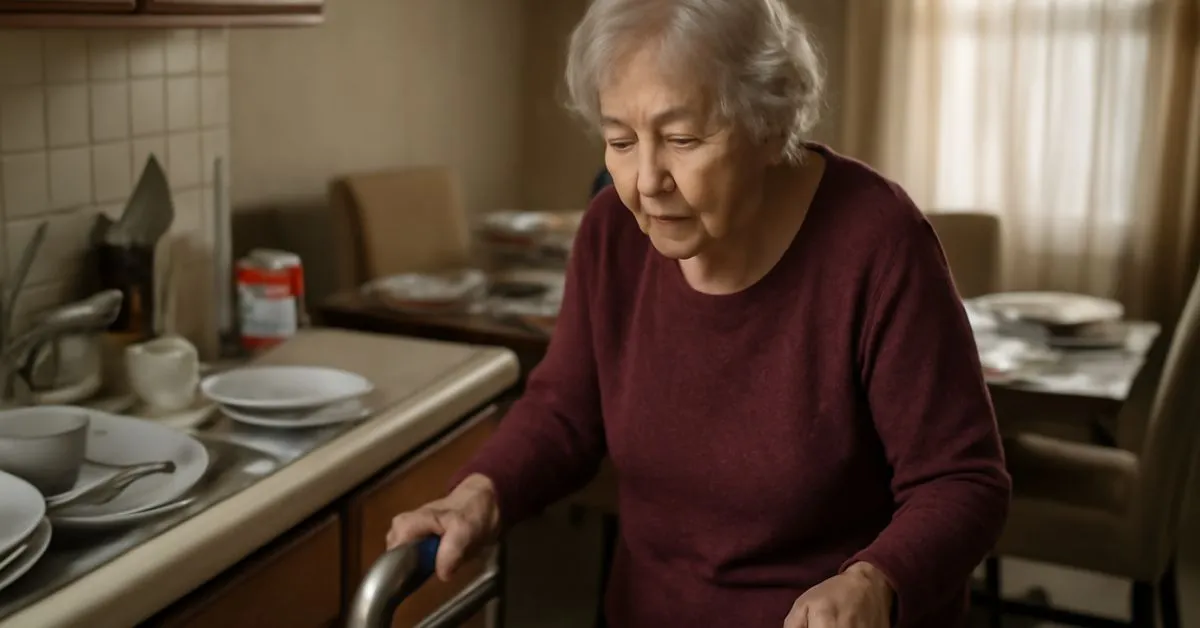Living alone is something most people want to keep doing for as long as possible. Nobody wants to give up their freedom or admit they need help with things they’ve been doing their whole lives. But sometimes, staying alone at home becomes more dangerous than helpful, and recognizing the warning signs early can make all the difference.
When Simple Tasks Become Major Challenges
The first red flags often show up in everyday activities that used to be automatic. When someone starts struggling to keep up with basic housework, it’s not just about having a messy home. Piles of dirty dishes, unopened mail stacking up for weeks, or laundry that never gets done can signal that daily management is becoming overwhelming.
Cooking becomes another major concern. If someone who used to prepare regular meals is now living on crackers and canned soup, or if you notice burnt pots or the smell of gas from forgotten burners, the kitchen has become a hazard zone. Many families don’t realize how serious this is until they find spoiled food in the refrigerator or discover their loved one has been eating the same expired meal for days.
Personal hygiene changes are harder to ignore but often get overlooked because nobody wants to bring up such a sensitive topic. When someone stops showering regularly, wears the same clothes for days, or stops caring for their teeth, it usually means the physical act of self-care has become too difficult or they’ve lost track of time and routines.
The Mobility Warning Signs Nobody Talks About
Falls are the obvious danger everyone worries about, but the warning signs start much earlier. When someone begins moving more slowly, holding onto walls while walking, or avoiding stairs they used to climb easily, their body is telling them something important. Many people try to hide these changes because they’re embarrassed or don’t want to worry anyone.
Furniture that gets moved closer together, grab bars that appear in unexpected places, or chairs positioned strategically throughout the house are all signs that someone is adapting to balance problems they might not openly discuss. The scariest part is when people start avoiding activities they used to enjoy because they’re afraid of falling.
Getting in and out of the bathtub becomes particularly dangerous. Many serious injuries happen in bathrooms because wet surfaces and awkward movements create the perfect storm for accidents. When someone stops bathing regularly, it might not be about depression or giving up – it could be about fear of falling.
When Memory Problems Create Safety Issues
Memory changes don’t always mean someone has dementia, but even mild forgetfulness can create serious safety problems when living alone. Forgetting to turn off the stove, leaving doors unlocked, or not remembering whether medications were taken can all have dangerous consequences.
For families dealing with these concerns, exploring professional options becomes essential. Resources for In-Home Care in Philadelphia and similar services in other areas can provide the support needed while allowing people to stay in their familiar environment. This type of assistance can address safety concerns while preserving independence and dignity.
Some memory-related warning signs are subtle. Someone might start writing excessive notes to themselves, calling family members repeatedly to ask the same questions, or becoming confused about what day it is. They might miss important appointments or forget to pay bills that have been automatic for decades.
The most concerning memory issue is when someone forgets they’ve already eaten or taken medication. This can lead to malnutrition or dangerous drug interactions. Many families only discover this problem when they find multiple bottles of the same prescription or notice their loved one has lost significant weight.
Social Isolation and Its Hidden Dangers
When someone who used to be social starts declining invitations, stops calling friends, or seems uninterested in activities they once enjoyed, isolation is setting in. This isn’t just about loneliness – social isolation actually affects physical health and can speed up cognitive decline.
People who live alone and become isolated often stop maintaining regular schedules. They might sleep all day and stay awake all night, skip meals, or go days without speaking to another person. This disruption of normal routines can affect everything from medication compliance to personal safety.
The phone becomes their lifeline, but when someone starts calling family members at inappropriate hours, having the same conversation multiple times, or expressing confusion about time and dates, it shows they’re losing touch with normal social rhythms.
Medical Management Becomes Overwhelming
Managing multiple medications is challenging for anyone, but when someone lives alone and starts making mistakes with their prescriptions, the consequences can be life-threatening. Mixing up pills, taking double doses, or forgetting medications entirely are all serious red flags.
Doctor appointments become harder to manage too. Missing appointments, showing up on the wrong days, or being unable to follow medical instructions properly can all signal that independent living is no longer safe. Many people try to hide these problems from their doctors and families, making the situation even more dangerous.
Making the Right Choice at the Right Time
Recognizing these warning signs early gives families time to explore options and make thoughtful decisions rather than responding to a crisis. The goal isn’t to take away independence but to add support that makes continued independence possible and safe.
Professional home care can address many of these concerns while allowing people to stay in their own homes. From medication management to meal preparation, from safety monitoring to companionship, the right support can extend safe independent living for years.
The key is having honest conversations about these changes before they become emergencies. Nobody wants to admit they need help, but getting support early often means maintaining more control over how that help is provided. Waiting until a crisis forces the decision usually results in fewer choices and more drastic changes to daily life.
